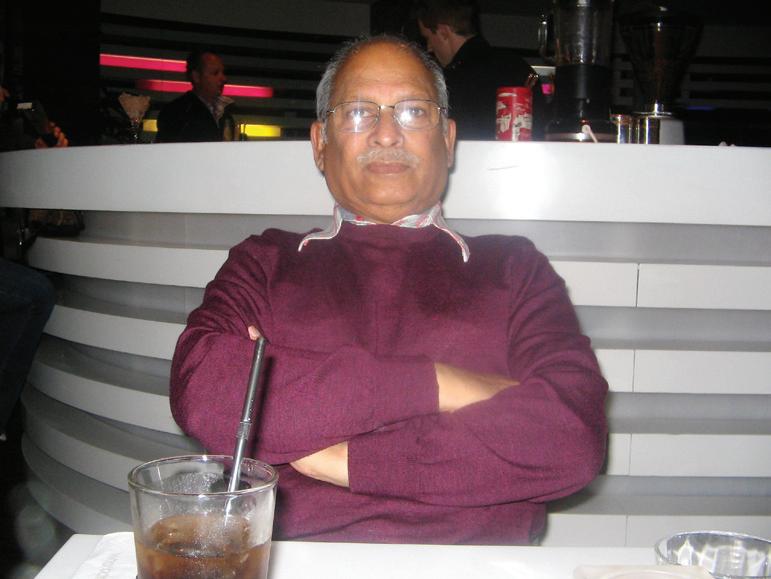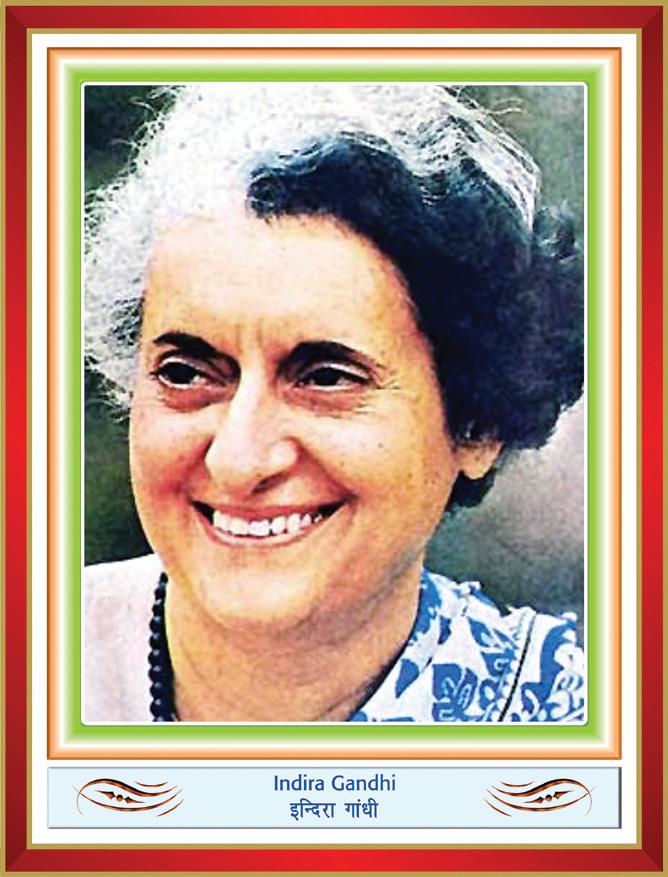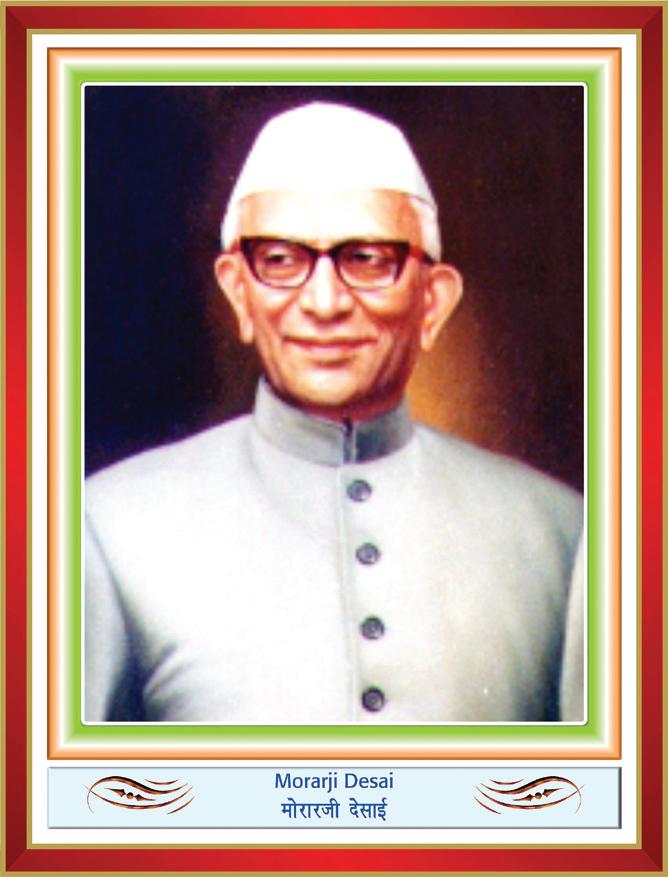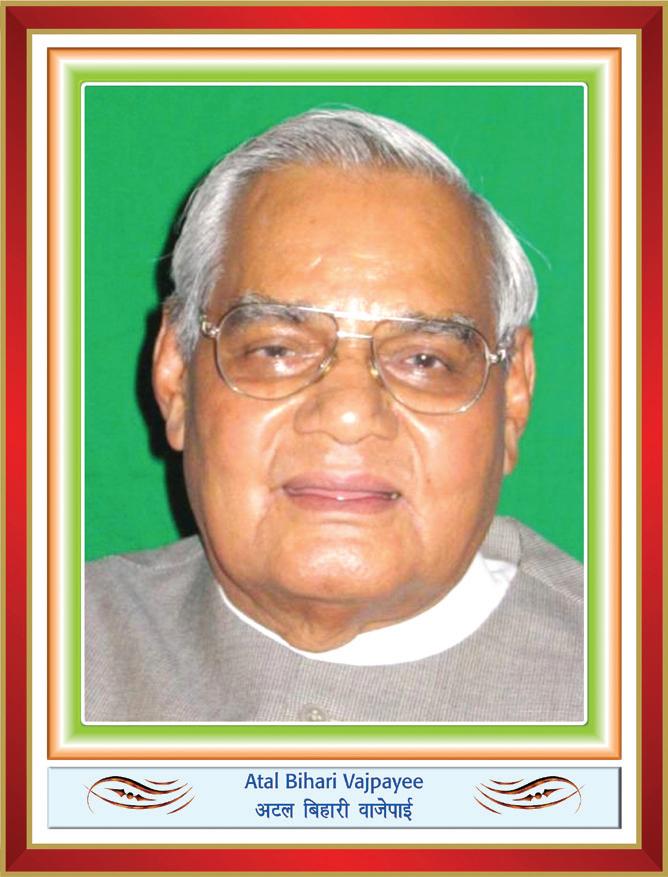
4 minute read
Yes, Prime Ministers!
from 2011-04 Sydney (2)
by Indian Link
BY GEORGE THAKUR
During my years in the hospitality industry in India, I was fortunate to meet various political heads and experience some interesting events and encounters. Here are a few anecdotes for
Haanji, Chachaji
In the late ninety-fifties, I was invited to the inauguration of the Lalit Kala Akademi, India’s national academy of arts, in New Delhi. Prime Minister Jawaharlal Nehru was the Chief Guest. When Chachaji, as he was fondly called, arrived in his sluggish Ambassador, everyone milled around, and wished him ‘Namaskar’ with hands folded. Fresh from university, I was the youngest and the only one who dared to break the unwritten protocol by actually engaging him in conversation. “Chachaji,” I asked, “What do you think of the name ‘Lalit Kala Akademi’?”


Chachaji placed an arm around my shoulders and ushered me inside. “Arre yaar, naam men kya rakkha hai,” was his jocund rejoinder. “A name is a name, is a name!” When departing, Chachaji reciprocated by bidding farewell to all with folded hands. However, when he came to me, he held out his hand and shook mine heartily. “Keep up the good work,” was his encouraging advice to me.
Words of wisdom from Mataji
As the Manager of VIP Catering at New Delhi’s Vigyan Bhawan (India’s premier conference centre) in the early ninety-seventies, I would come across Prime Minister Indira Gandhi practically every other day. As we grew acquainted, I began to ask if she had a speciality dish in mind to try on that particular day. Despite all the cooks who worked under me, I would still sample the dish that Mataji, as she was known, was to eat. Pandit Mohan Lal, Mataji’s personal bodyguard and her father’s before her, would carry two flasks: one coloured orange which would contain orange juice, and the other, white, for water. On some occasions, while Panditji would ensure the PM’s security and watch every spot and everyone in the dining hall, Mataji would attract my attention and would point one finger if she wanted water or two if she wanted orange juice, and I would intimate her demand to Panditji. Mataji would always be short of time, but one day when she appeared relaxed, I naïvely asked her why didn’t India invest in heavy earth-moving machinery that would do the job in half the time. Well before I had actually finished speaking she retorted, “George! You fail to realize that heavy machinery will also leave half the workers jobless!”

Lunch with black tea and Urdu poetry
President Fakhruddin Ali Ahmed would also visit Vigyan Bhawan regularly. He was frail and walked supported with a stick. On seeing him, I would gently hold him by the elbow and escort him from the large lounge room to an equally large dining room, where he would sit on an emperor-sized leather chair, his favourite. I would then place a coffee table in front of him, which would suffice as his dining table, and inquire if “Fakhruddin Sahib” wanted his usual lunch of poached chicken breast with steamed vegetables, washed down with a glass of warm water or occasionally, black, sugarless tea. The President would then ask me to stay on and discuss Urdu poets and poetry. While my heart and mind were with the foreign guests of United Nations pedigree, I was obliged not to displease the President of India, so I would perch on the carpet and we would converse across the coffee table. While Sahir Ludhyanivi’s romanticism was his favourite, the President adored Iqbal who wrote: Saare jahan se achcha, Hindustan hamaara. Hum bulbulen hain uski, woh gulistan hamaara, etc. The President was disheartened that Iqbal had chosen Pakistan over India. In Sahir’s work, his favourite was,
Mujh se pehli si mohabbat, mere mahboob, na maang Occasionally, Mataji would walk in and ask me to give her two minutes with the President. Once she had finished her discussion, she would ask me to resume discussing Urdu poets and poetry with the President. I always wondered how she knew what I was discussing with the President.
I was employed with the Ranjit Hotel as we had opened Santoor, the first Kashmiri cuisine restaurant in New Delhi. The National Emergency had been promulgated, and I visited Vigyan Bhawan to assist with a luncheon. The President entered the hall, he saw me and smiled, and as I escorted him to his usual chair, he asked how my wife Rose and our first-born Steve were doing. He also asked what I thought of ‘NE’. However, our conversation from that point on will remain confidential!
A memorable short break
Once, as we served coffee and biscuits to Prime Minister Pierre Trudeau of Canada during a break in his meeting with Indian experts, he asked me to join him as he wanted company. Of course, I was proud and happy to comply. The Prime Minister spoke little, but as he returned to the meeting, he asked for my name, shook my hand and told me to let him know as and when I intended travel to Canada.
Food fest in Prague
When in Prague, Czechoslovakia (now the Czech Republic), the Indian Ambassador Raja Surinder Singh of Alirajpur summoned me to his office one day, with the news that
Prime Minister Morarji Desai, accompanied by Foreign Minister Atal Bihari Vajpayee, was visiting Prague. His worry was that the PM’s cook had contracted chicken pox and had to be flown back to India. There was no-one to prepare special meals for the PM, who was on a special diet: non-grain meals, juice of carrots grown in north India during winter, Indian sweets made from cottage cheese, dried fruit and water. As I wondered where I fitted in the equation, the Ambassador handed me a menu card of the PM’s diet and asked if I could spare one of my two chefs for four nights to cook for the PM. I explained that as we worked for the Czech government and neither of my cooks knew how to prepare Indian sweets, I would take on the job. As Manager of the Indian government’s first Indian food restaurant abroad, I had been trained in preparing delicacies in cottage cheese which would suit the PM. I drove to Germany to buy cottage cheese, ginger, garlic, coriander and spices and stayed at the Ambassador’s bungalow for four nights. During that time I prepared rasgullas, ras malai, chum-chum, burfi and gulab jamuns, etc. Seekh kababs, sahmi kababs ajmeri, murgh musallam, Tehran biryani, Mughlai parathas, and shahi tukra, etc., were served, and I also ate with them. A memorable piece of general advice was imparted to me by PM Desai in the course of a general conversation, and I quote: “The row of degrees after your name does not necessarily grant you membership into the club of the genteel.” How truthfully beautiful!


Each person wearing the Prime Ministerial hat does their best for the people and the country, but their personal beliefs can truly overwhelm those they come in contact with over the course of their normal day.









